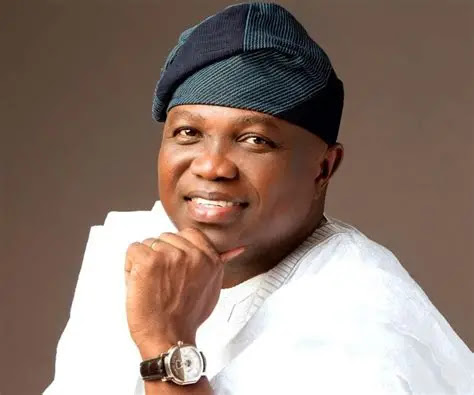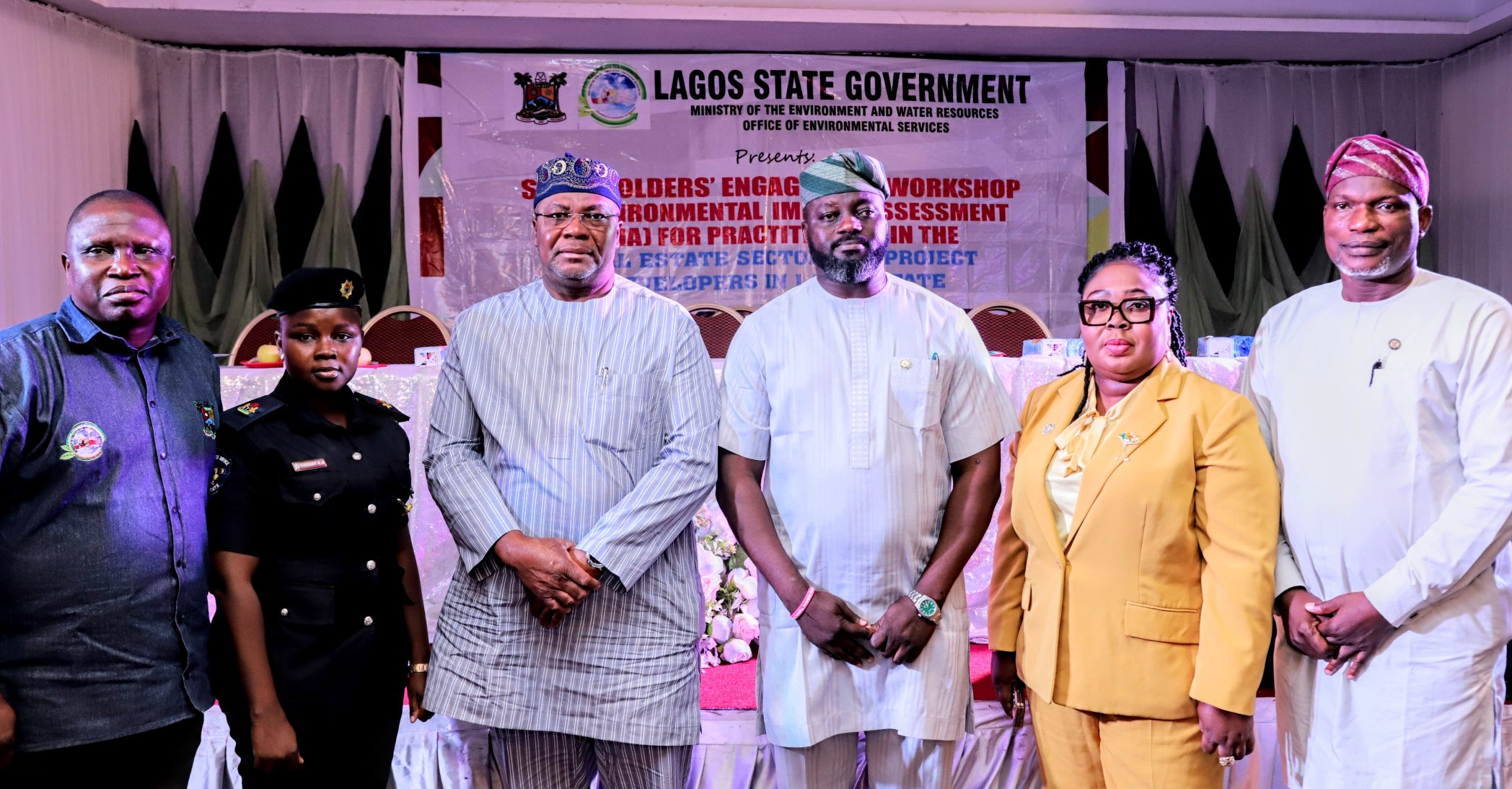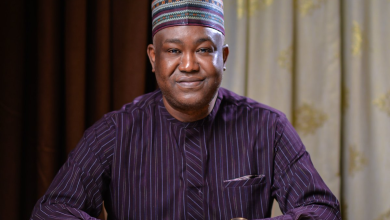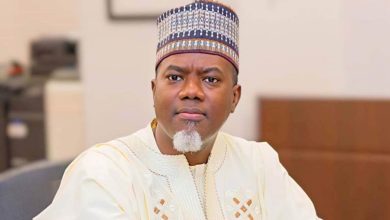In a move that has sent ripples through Nigeria’s political landscape, former Lagos State Governor, Mr. Akinwunmi Ambode, has officially declared his intention to contest the 2027 Lagos State gubernatorial election under the platform of the All Progressives Congress (APC). The announcement, made during a gathering of political allies, supporters, and APC stalwarts in Lagos, also saw Ambode throw his weight behind President Bola Ahmed Tinubu’s anticipated re-election campaign for 2027. This development marks a significant turning point in Lagos politics, as Ambode’s return to the political stage could reshape the dynamics of the state’s leadership race and influence the broader national political narrative.
A Comeback with Strategic Intent
Akinwunmi Ambode’s declaration to run for the Lagos governorship in 2027 is a bold and calculated step, signaling his intent to reclaim the political prominence he once held as the state’s chief executive from 2015 to 2019. Ambode, a seasoned administrator and accountant, served as Lagos State Governor during a transformative period in the state’s history. His tenure was marked by significant infrastructural developments, including the expansion of road networks, the introduction of the Bus Rapid Transit (BRT) system, and advancements in urban renewal projects that positioned Lagos as a leading economic hub in Africa.
However, Ambode’s time in office was not without controversy. His fallout with key political figures within the APC, particularly the influential Tinubu, led to his failure to secure the party’s ticket for a second term in 2019. The APC, under Tinubu’s guidance, opted to back Babajide Sanwo-Olu, who went on to win the governorship and has since served as the incumbent governor. Ambode’s exit from the political spotlight was seen by many as a consequence of internal party power struggles, with Tinubu’s influence as the APC’s national leader playing a pivotal role in shaping the party’s direction in Lagos.
Since leaving office, Ambode has maintained a relatively low profile, focusing on private endeavors while occasionally engaging in public discourse on governance and leadership. His announcement to return to the gubernatorial race has sparked widespread speculation about his motivations and the potential impact of his candidacy on Lagos’ political landscape. Analysts suggest that Ambode’s decision to contest the 2027 election may be driven by a desire to complete unfinished projects, restore his political legacy, and leverage his experience to address emerging challenges in Lagos.
A Strategic Endorsement of Tinubu
In a move that underscores his political astuteness, Ambode used the platform of his announcement to reaffirm his loyalty to President Bola Tinubu, endorsing the president’s re-election bid for 2027. This endorsement is significant, given the complex history between the two men. Tinubu, widely regarded as the political godfather of Lagos, has wielded considerable influence over the state’s governance for decades, shaping the careers of successive governors, including Ambode and Sanwo-Olu.
Ambode’s public support for Tinubu’s re-election bid is seen as a strategic olive branch, aimed at mending past differences and aligning himself with the APC’s national leadership. During his speech, Ambode praised Tinubu’s leadership, crediting him with laying the foundation for Lagos’ economic growth and Nigeria’s broader development. “President Tinubu has shown remarkable vision and commitment to Nigeria’s progress,” Ambode stated. “His re-election in 2027 will ensure continuity of the transformative policies that are steering our nation toward prosperity.”
This endorsement is not merely a gesture of goodwill but a calculated move to secure Tinubu’s support or at least neutralize any potential opposition within the APC. Political observers note that Ambode’s alignment with Tinubu could bolster his chances of clinching the APC gubernatorial ticket, given Tinubu’s enduring influence within the party. However, it remains to be seen whether this move will fully mend the fractured relationship between the two or whether it will face resistance from other factions within the APC.
Lagos 2027: A Crowded and Competitive Race
The 2027 Lagos gubernatorial election is shaping up to be one of the most competitive in the state’s history. With Ambode’s entry into the race, the APC primary is likely to witness intense jostling among aspirants vying for the party’s ticket. Incumbent Governor Babajide Sanwo-Olu, who is eligible to seek re-election for a second term, remains a formidable contender. Sanwo-Olu’s administration has focused on infrastructure, transportation, and digital innovation, with projects like the Lagos Rail Mass Transit system and the Blue Line rail gaining significant attention.
However, Sanwo-Olu’s tenure has not been without criticism. Issues such as traffic congestion, urban flooding, and the rising cost of living have posed challenges for his administration. Ambode’s candidacy could capitalize on these pain points, presenting him as a tested leader with a track record of delivering tangible results. His experience as a former governor gives him a unique advantage, as he can draw on his past achievements while addressing the shortcomings of the current administration.
Beyond the APC, other political parties, including the People’s Democratic Party (PDP) and the Labour Party (LP), are expected to field strong candidates in the 2027 election. The PDP, in particular, has been working to regain its footing in Lagos, a state historically dominated by the APC and its predecessor parties. The Labour Party, buoyed by its performance in the 2023 general elections, could also pose a significant challenge, especially if it capitalizes on growing youth discontent and the demand for alternative leadership.
Ambode’s announcement has already sparked debates about the potential for a crowded APC primary. Other aspirants within the party, including younger politicians and Tinubu loyalists, may also throw their hats into the ring, setting the stage for a fierce contest. The outcome of the APC primary will likely hinge on Tinubu’s preferences, as his influence remains a decisive factor in Lagos politics. Ambode’s decision to align himself with Tinubu could give him an edge, but it is not a guarantee of success, given the complex interplay of interests within the party.
Ambode’s Vision for Lagos
In his announcement speech, Ambode outlined a broad vision for Lagos, emphasizing the need for inclusive governance, economic diversification, and sustainable urban development. He highlighted the challenges facing the state, including rapid population growth, infrastructure deficits, and the need to create opportunities for the youth. “Lagos is the economic heartbeat of Nigeria, but it faces unique challenges that require bold and innovative solutions,” Ambode said. “I am committed to building on the progress we made during my tenure and addressing the emerging needs of our people.”
Ambode’s vision includes a focus on technology-driven governance, affordable housing, and improved transportation systems. He also emphasized the importance of empowering small and medium-sized enterprises (SMEs) to drive economic growth and reduce unemployment. His administration’s previous investments in projects like the Eko Atlantic City and the Lekki Free Trade Zone were cited as examples of his forward-thinking approach to development.
One of Ambode’s key selling points is his track record of delivering high-impact projects during his tenure. The expansion of the Lagos-Badagry Expressway, the construction of pedestrian bridges, and the introduction of modern waste management systems were among his signature achievements. However, critics argue that some of these projects were marred by cost overruns and implementation challenges, which could resurface as points of contention in the 2027 campaign.
The Tinubu Factor and National Implications
Ambode’s endorsement of Tinubu’s re-election bid has broader implications for Nigeria’s political landscape. As the 2027 general elections approach, Tinubu’s camp is likely to consolidate its influence within the APC, positioning the president as the party’s flagbearer. Ambode’s support strengthens Tinubu’s position in Lagos, a state that is critical to the APC’s electoral success due to its large voter base and economic significance.
Tinubu’s re-election campaign is expected to focus on sustaining the economic reforms initiated during his first term, including the removal of fuel subsidies, currency unification, and investments in infrastructure. However, these policies have faced public backlash due to their immediate economic hardships, including inflation and rising living costs. Ambode’s endorsement could help bolster Tinubu’s image in Lagos, where public sentiment remains mixed.
At the national level, Ambode’s return to active politics could signal a broader realignment within the APC. His candidacy may inspire other former governors and political heavyweights to re-enter the fray, creating a dynamic and competitive political environment. The interplay between regional power blocs, particularly in the Southwest, will be crucial in shaping the APC’s strategy for 2027.
Challenges and Opportunities for Ambode
While Ambode’s announcement has generated excitement among his supporters, he faces significant challenges in his quest for the Lagos governorship. The first hurdle is securing the APC ticket, which will require navigating the party’s internal politics and winning over key stakeholders, including Tinubu and his loyalists. The memory of his 2019 fallout with the APC leadership lingers, and some party members may view his candidacy with skepticism.
Additionally, Ambode will need to address criticisms from his previous tenure, including allegations of strained relationships with the state legislature and local government officials. His ability to build coalitions and demonstrate humility will be critical in overcoming these perceptions.
On the opportunity side, Ambode’s experience and name recognition give him a strong platform to campaign. His tenure as governor showcased his ability to deliver results, and his focus on technocratic governance could resonate with Lagosians seeking pragmatic leadership. Furthermore, his endorsement of Tinubu positions him as a team player, potentially neutralizing opposition from the party’s core leadership.
Public Reaction and Political Analysis
The announcement has elicited mixed reactions from Lagos residents and political observers. Supporters of Ambode view his return as a chance to revive the momentum of his first term, citing his infrastructure projects and urban planning initiatives as evidence of his capability. “Ambode transformed Lagos in just four years,” said Tunde Adekunle, a Lagos-based entrepreneur. “His return could bring back the kind of bold leadership we need.”
However, critics argue that Ambode’s fallout with Tinubu and the APC leadership raises questions about his ability to navigate the complex political terrain of Lagos. “He’s a capable administrator, but politics is about relationships,” noted political analyst Dr. Femi Adebayo. “Ambode will need to prove that he has learned from his past mistakes and can work within the party’s structure.”
The endorsement of Tinubu has also drawn scrutiny, with some questioning whether it reflects genuine reconciliation or a pragmatic move to secure political relevance. Regardless, the announcement has energized discussions about the future of Lagos politics, with social media platforms buzzing with debates about Ambode’s prospects.
The Road Ahead
As the 2027 elections draw closer, Ambode’s candidacy will be closely watched, both in Lagos and across Nigeria. His ability to mobilize grassroots support, secure the APC ticket, and present a compelling vision for Lagos will determine his success. The endorsement of Tinubu is a strategic move, but it remains to be seen whether it will translate into tangible political capital.
For now, Ambode’s announcement has injected fresh energy into Lagos’ political scene, setting the stage for a high-stakes gubernatorial race. Whether he can reclaim the governorship and restore his political legacy will depend on his ability to navigate the complexities of APC politics, address public concerns, and deliver a message that resonates with Lagosians.
In conclusion, Akinwunmi Ambode’s declaration to contest the 2027 Lagos gubernatorial election and his endorsement of President Tinubu’s re-election bid mark a pivotal moment in Nigeria’s political landscape. As the former governor steps back into the spotlight, all eyes will be on Lagos, where the interplay of ambition, loyalty, and power will shape the future of one of Africa’s most dynamic cities.






